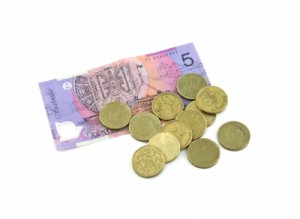I won’t pretend to say it’s easy saving money on a low income. It’s not. However, it is very necessary. Probably even more so than when you have a huge income. When you are on a low income you have less disposable income which means less access to cash in an emergency. Where would you get the money if you had an emergency?

Image courtesy of David Castillo Dominici/freedigitalphotos.net
It would be lovely if we could all have $1000 to immediately put into a savings account for a rainy day but the reality is that would take many of us months to save up. So here are my saving tips for low income families:
- Savings Jar – I have mentioned the savings jars that I have going previously. Get an old coffee tin, rip off the label, put a 50c coin width size in the lid and then tape the lid on. Drop in the coins even if it is just 5c and 10c coins to begin with, believe me they do add up.
- Make it fun putting coins in the tin. Make a deal with your family that every time a 50c coin comes into their possession they are not allowed to spend it. It must go in the tin. You won’t miss 50c and they quickly add up. If you put just three 50c coins in the tin per week, in six months you would have $39.

Image courtesy of AKARAKINGDOMS/freedigitalphotos.net
- When the tin is full take it into the bank and transfer it to your savings account.
- Make it fun putting coins in the tin. Make a deal with your family that every time a 50c coin comes into their possession they are not allowed to spend it. It must go in the tin. You won’t miss 50c and they quickly add up. If you put just three 50c coins in the tin per week, in six months you would have $39.
- Online Saving Account – Open an online saver account (I use ING but most banks offer these now) and transfer $10 every payday directly across. If you can spare more then put more across. I like online accounts as you have to transfer it to get access. It means that you are more likely to leave it sitting there and only transfer it in a true emergency.
- At the end of each fortnight if you have any money left over from your budget for food or fuel etc. transfer it to your emergency account or put it in your tin.
Fast start to savings
- One way to get a lump sum into your emergency savings quickly is to speak with Centrelink for an advance payment. Most people on payments e.g. Newstart, Pension will be eligible for a lump sum once per year. If you receive FTB you can get two a year – in January and July – these can be set up automatically or you just ask when you want it. You then pay it back over the next 13 fortnights (six months) out of your payment. The benefits for setting up your emergency fund like this are:
- For example if you receive a $500 advance payment you would be required to pay $38.46 per fortnight. By getting an advance put straight into your emergency savings account you have the benefit of it sitting there earning interest. You then become disciplined in not having that $38.46 per fortnight coming out of your payment so when you’ve repaid it you can then keep paying that amount each fortnight into the emergency savings account.

Image courtesy of zirconicusso/freedigitalphotos.net
- For example if you receive a $500 advance payment you would be required to pay $38.46 per fortnight. By getting an advance put straight into your emergency savings account you have the benefit of it sitting there earning interest. You then become disciplined in not having that $38.46 per fortnight coming out of your payment so when you’ve repaid it you can then keep paying that amount each fortnight into the emergency savings account.
Let’s look at this in real terms. You set up the account with the initial advance of $500.
Advance Payment: $500
Regular Payment: $130 ($10/fn)
3 x 50c per week: $ 39
This would give you a total of $669 in six months! Even if you just used the advance and the 50c coins you would have $539 saved in six months. Now if you continue to pay the $38.46 per fortnight that Centrelink was taking into that account you and added nothing else you would have $1039 in a year.
So little bits add up. Coins add up. It may take time but having savings means you have something to fall back on in the event of an emergency. Happy saving!

Greetings! I thought your post was good! It’s always hard for people to save money nowadays with the lure of big screen TV’s in their faces, haha. Good tips for beginner savers I would think. Saving every bit counts for something!
Keep up the good work,
Michael
It does and seeing the look on the kids faces when something you saved hard for is coming to fruition is priceless!
I have a coin jar and it does add up. The last time I cashed it in I had over $30 in it. 🙂
It is amazing how small amounts that mean nothing on their own can become a big amount!
Snap Wendy… Did the same as well and was amazed to see how much money came out of it. Was awesome! Decided to donate all the money to a Shark conservation organisation.
My son has a coin jar and he grabs everyone who walks in the door to put 5c and 10c coins into so he can donate it.
Saving is such an important aspect in life. No matter what income group you belong too, saving is the key foundation to wealth creation. I wish I have saved more when I was a lot younger but then again, it’s never too late to start.
When I think about how much money I’ve wasted over the years and the amount I could have saved I sometimes cry. I’m trying to teach my children the value of saving so they learn from my mistakes!
Hi Megan
Hubby and I like to do a word challenge to save some money. We look at how we talk, and the things we talk about, and pick out a commonly used (by us) word. Then we either look for a similar word to replace it with, or we come up with something silly to replace it with. Then we give ourselves 1 month and a jar. Every single time the original word we chose is spoken by one of us, a dollar goes in the jar. It works really well for us, and sometimes if we have $10 in coins in a pocket, the game gets silly, just to get the coins into the jar! We usually aim to get $100 in the jar in a month. Doesnt always happen, but its fun, and a cool way to save a little.
Love it! Whatever works for you to save is a positive outcome.